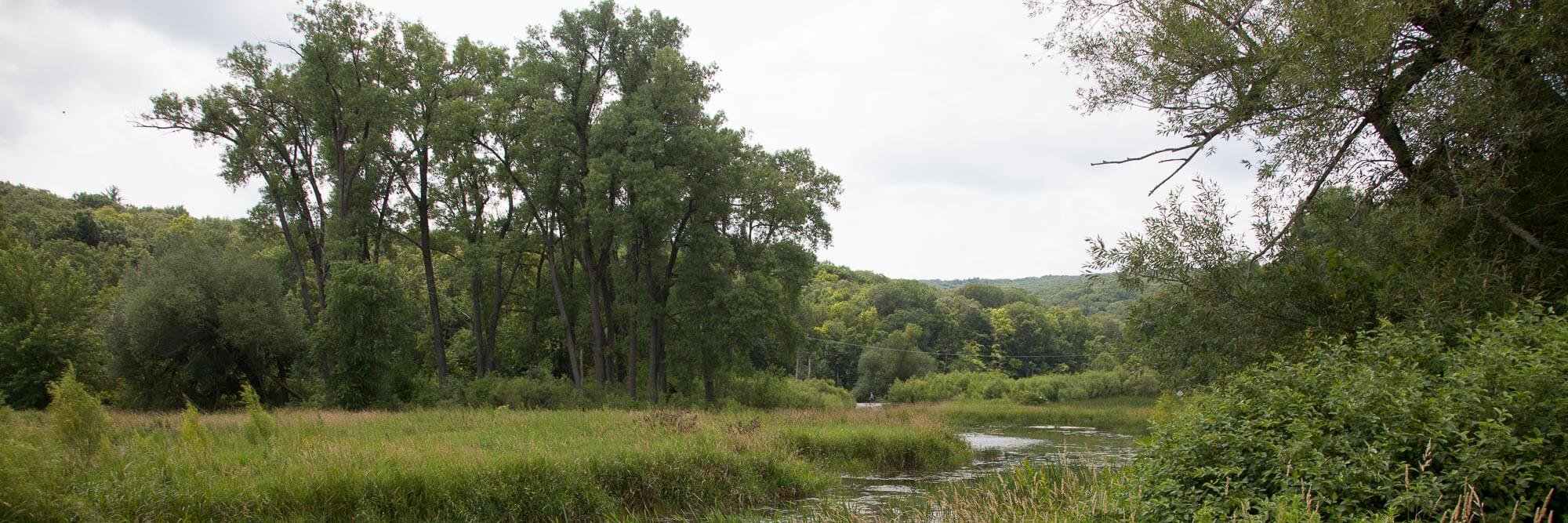
We Support
Learn How We Support Local Non-Profit OrganizationsChoosing Devils Lake Climbing Guides means supporting the local and national non-profits that help preserve and improve the integrity of Devils Lake State Park and its recreational resources. We pledge a minimum of 1% of our revenues toward supporting the following organizations:
While Devils Lake State Park is Wisconsin's most-visited state park, it does not get to keep all of its receipts toward park staffing, infrastructure, etc. In fact, about 35% of Devil's Lakes revenues go to supporting other Wisconsin state parks, most of which do not make an annual profit. The Friends help bridge the gap between DLSP financial and staffing needs and its budget by partnering with Park staff to complete environmental projects, sponsor educational and recreational activities, and raise funds to support special park needs. If you'd like to support this mission, join the Friends of Devil's Lake State Park now and help Devil's Lake remain a crown jewel of Midwestern parks.
The Ice Age Trail Alliance supports the development, maintainence and protection of the Ice Age National Scenic Trail (IANST), a 1,000-mile footpath following the southern terminus of Wisconsin's most recent ice age. Perhaps the largest and most ambitious outdoor recreation project in Wisconsin's history, the IAT project has made incredible progress since its birth in 1958 thanks to a core of hard-working volunteers and donors who have worked with government land managers and private landowners to establish a ever-more-continuous hiking trail.
Because the IANST runs through Devils Lake State Park, it makes Devils Lake a National Park property so you can use a National Parks pass if you have one. If you'd like to explore the Ice Age Trail, we highly recommend the beautiful new Ice Age Trail Guidebook, redesigned in 2014. To become a member of the Ice Age Trail Alliance or volunteer on a trail project, contact the IATA. They will welcome you with open arms!
No other climbing organization works so effectively to promote the welfare of American climbers. Focusing on Advocacy, Community, and Knowledge, the American Alpine Club expands opportunities in so many ways for the U.S. climbing community. Here are a few of our favorite benefits of AAC membership:
Grants: ACC grants financial assistance to both high-profile and average climbers to pursue their dream projects. Local climbing organizations of all kinds can secure AAC conservation grants to improve the environmental quality of their local crags.
Adventure Insurance: All AAC members automatically receive $10,000 of rescue insurance. Does your health insurance plan include helicopter evacuation? This one does.
Lodging: My first interaction with the AAC was staying at the Climbers' Ranch in Grand Teton National Park, where you can't beat the accommodations, camaraderie, or location, let alone the price. The AAC continues to seek out properties proximal to popular climbing areas to improve access for all climbers.
Accident Reports: Accidents in North American Mountaineering is the AAC's annual review of - you guessed it - rock climbing and mountaineering accidents throughout the continent. Accidents are generally self-reported and often include helpful analysis of the incident and how it could have been avoided. A great book to keep on hand in the car, bathroom, or breakfast table, as you can read one or two reports at a time in spare moments to sharpen your risk awareness and future planning.
Access Fund is the main non-profit advocate for gaining and maintaining access to climbing areas in the United States. Access Fund works to improve relationships between the climbing community and a broad range of stake holders through climbing policy and advocacy, land acquisition and protection, stewardship and conservation, local support, and education.
Threats to climbing access come in many forms—private climbing areas put up for sale, land managers over-regulating climbing, user impacts degrading the climbing environment, landowners fearful of liability, the list goes on. Access Fund’s approach to protecting climbing areas is as multifaceted as the threats.
The Wisconsin Climbers Association is a non-profit, volunteer-led organization that represents the interests of the Wisconsin climbing community. They partner with the Access Fund as the local liaison climbing organization for the state of Wisconsin. Together, the WCA and Access Fund foster connections within the community, address access issues, and promote land stewardship.
The Wisconsin Climbers Association is committed to advocating for Wisconsin climbing by serving as a collective voice in working with landowners, politicians, parks and recreation services, and others pertinent to climbing access.
Leave No Trace Center for Outdoor Ethics (LNT) teaches people of all ages how to enjoy the outdoors responsibly, and is the most widely accepted outdoor ethics program used on public lands. By creating and spreading principles of minimum impact via workshops, school outreach, community initiatives and publications, LNT increase awareness of human impacts on recreation areas and promotes better care of these areas. LNT has created helpful guidelines specific to most popular outdoor sports, including climbing-specific recommendations for minimizing impact. Organizations may support Leave No Trace by becoming a partner.
As the gateway community to Devils Lake State Park, Baraboo provides climbers essential resources like grocery stores, coffee shops, gear retailers, restaurants, and overnight accommodations. Like any small town, Baraboo strives to create a rich, vibrant environment for visitors that supports the health of the local economy. Please support Baraboo businesses by providing your patronage and enjoying the great services available locally.







